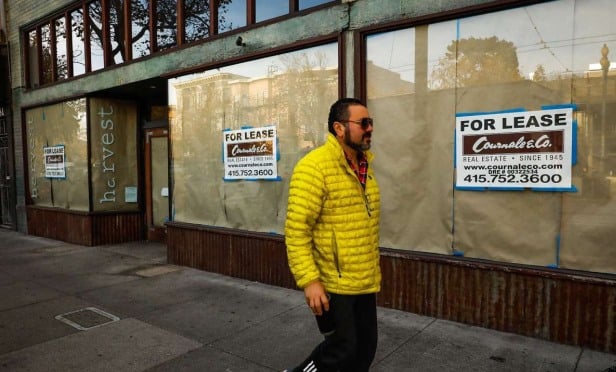 A vacant property tax on ground-floor space will be assessed in certain commercial areas (credit: Office of the Mayor).
A vacant property tax on ground-floor space will be assessed in certain commercial areas (credit: Office of the Mayor).
SAN FRANCISCO—A vacant property tax measure, Proposition D, was on the ballot for voters in San Francisco County yesterday. A two-thirds (66.67%) super-majority vote was required for approval.
At 91,050 votes, the measure passed, with 68.1% in favor. The no votes represented 31.9%.
The approved measure will authorize a vacant property tax on ground-floor commercial space in certain commercial districts with revenues dedicated to assisting small businesses.
In the past, the city and county of San Francisco did not tax owners or tenants who kept commercial property vacant. City voters were required to approve increases in tax revenue spending limits.
As a result of yesterday's election, the tax beginning January 1, 2021 would be based on two factors:
- The number of feet facing the street of ground-level commercial space that owners or tenants have kept vacant and how long that commercial space has been kept vacant.
- Owners would be taxed only if a commercial space has been kept vacant for more than 182 days in a calendar year. Vacant days do not include limited periods when certain permits have been applied for or issued, or a fire or natural disaster has made a commercial space unusable.
When tenants or subtenants have kept a commercial property vacant for more than 182 days in a calendar year, they would be taxed rather than owners. Tenants or subtenants that have a two-year or longer lease agreement and operated a business in the leased space for at least 183 days in a row would not be taxed for keeping the space vacant.
This vacancy tax would apply as follows:
- In 2021, owners or tenants would be taxed $250 per street-facing foot.
- In 2022, owners or tenants would be taxed either $250 or $500 per street-facing foot if the space was kept vacant in the immediately preceding year.
- In 2023 and later, owners or tenants would be taxed either $250, $500 or $1,000 per street-facing foot depending on the number of immediately preceding years in a row the space was kept vacant.
Proposition D would increase the city's annual tax revenue spending limit for four years. This vacancy tax would not apply to certain nonprofit organizations.
Want to continue reading?
Become a Free ALM Digital Reader.
Once you are an ALM Digital Member, you’ll receive:
- Breaking commercial real estate news and analysis, on-site and via our newsletters and custom alerts
- Educational webcasts, white papers, and ebooks from industry thought leaders
- Critical coverage of the property casualty insurance and financial advisory markets on our other ALM sites, PropertyCasualty360 and ThinkAdvisor
Already have an account? Sign In Now
*May exclude premium content© 2025 ALM Global, LLC, All Rights Reserved. Request academic re-use from www.copyright.com. All other uses, submit a request to [email protected]. For more information visit Asset & Logo Licensing.








